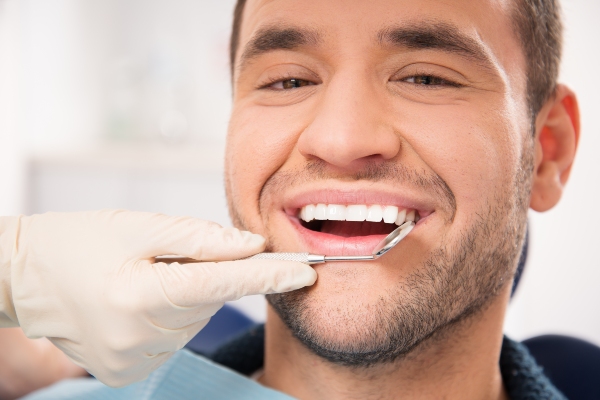 You might need emergency dentistry if you have a tooth infection. Emergency dentistry can help relieve the pain and discomfort associated with tooth infections. Emergency dentistry can also help to prevent the spread of tooth infections.
You might need emergency dentistry if you have a tooth infection. Emergency dentistry can help relieve the pain and discomfort associated with tooth infections. Emergency dentistry can also help to prevent the spread of tooth infections.
Tooth infections occur when there is an infection in the tooth's pulp. The pulp is the soft tissue that contains the blood vessels and nerves. If the pulp becomes infected, it can cause great pain. Emergency dentistry can help to relieve this pain and discomfort.
How emergency dentistry addresses infected teeth
Some of the treatments an emergency dentist might recommend for tooth infections include:
1. Root canal therapy
Root canal therapy is performed as a last option to save infected teeth. The procedure involves drilling a hole into the infected tooth so the dentist can remove the infected pulp. The emergency dentist uses local anesthetics to numb the work area to prevent the patient from feeling pain during the procedure.
Once the emergency dentist removes soft tissues in the pulp chamber, they can insert medication into the hole and seal it with gutta-percha. Teeth restored with root canal therapy are typically covered with crowns to protect them against further damage and infection.
2. Tooth extraction
In some cases, emergency dentists may recommend extracting the infected tooth. However, extractions are usually only done when the infection is so severe that root canal therapy is not an option. The dentist uses local anesthetics to numb the area being worked on so the patient does not feel any pain during the procedure.
The emergency dentist will then use special dental instruments to loosen the tooth and remove it from the socket. The dentist may place gauze over the empty socket to help stop any bleeding.
3. Antibiotics
If the infection is mild, emergency dentists may prescribe antibiotics to help clear it up. The patient can take the antibiotics orally or be applied directly to the affected tooth. It is essential to finish taking all antibiotics as prescribed, even if the infection appears to be gone.
Importance of emergency dental care
Emergency dental care is crucial because it can help relieve the pain and discomfort associated with tooth infections. Emergency dentistry can also help to prevent the spread of infection. If you think you might have a tooth infection, it is essential to see an emergency dentist as soon as possible. Emergency dental care can help to save your tooth and prevent further damage.
An infected tooth requires emergency dental care
If an infected tooth is left untreated, it can lead to serious complications. The infection can spread to other parts of the body, which can be potentially life-threatening. Additionally, an infected tooth can cause a great deal of pain and discomfort. If you think you might have a tooth infection, it is important to see an emergency dentist as soon as possible. Emergency dental care can help to save your tooth and prevent further damage. Call or visit our Stuart clinic to set up an appointment.
Here's how to reach us...
Request an appointment or call Anthony DeLucia D.D.S., P.A. at 772-492-7045 for an appointment in our Stuart office.
Related Posts
Dental emergencies can happen unexpectedly and lead to severe discomfort. When faced with sudden oral pain, injury, or infection, you should seek immediate care from an emergency dentist. The following framework outlines the typical processes and considerations you can expect from emergency dental care.An emergency dentist specializes in providing immediate dental care for unexpected issues…
An emergency dentistry office is accustomed to repairing trauma to teeth. This is one of the most frequent types of reasons why patients go. If you have had an accident and hurt one or more teeth, call an emergency dentist near you. Though you may be in pain and have risks for further problems, you…
Emergency dentistry deals with dental emergencies that require immediate treatment. For example, an infected tooth requires urgent care since it causes excruciating pain, and the infection is always a risk of expanding to other parts of the body.Here are some fascinating facts everyone should know about emergency dentistry:The emergency dental care umbrella covers any dental…
